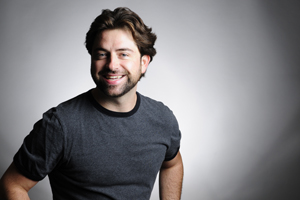Opinion: Marijuana’s uphill battle for legalization

Opinion: College for dummies
October 9, 2011
Robert Thomas Young
Robert Thomas Young is a senior philosophy and psychology major and columnist for the Daily Kent Stater. Contact him at [email protected].
Medical marijuana dispensaries in California received letters last week from federal prosecutors threatening to seize their properties and imprison them if they don’t refrain from distributing the drug within the next 45 days.
Sixteen states and Washington, D.C. have legalized marijuana for medicinal use, yet it is still listed as an illegal schedule 1 narcotic (same as heroin and Ecstasy) by federal laws. This is another issue of state rights versus federal rights, and just like previous disagreements, it is tied more to economics than what is morally right.
President Obama came out against federal raids on medical marijuana dispensaries when he was running for office, and he maintained this stance through his attorney general, Eric Holder Jr., shortly after taking office.
This is why the sudden duplicity on this issue is so perplexing to many people. It would be easy to point to the upcoming election and say that Obama is trying to gain conservative votes, but I think more is happening behind the scenes.
The cities of Berkeley and Oakland, Calif. have recently put forth plans to permit medical marijuana cultivation on an industrial scale, and this issue has prompted what many are calling a reversal of Obama’s position. Basically, it is becoming too large of an issue to ignore, politically.
The issue of the legalization of marijuana, whether medicinal or recreational, has been a hot topic; some political strategists foresee this as a future wedge issue between parties, similar to the gay marriage issue that former President George W. Bush used to gain support from evangelical Christians.
In terms of consistency, it is incredibly hypocritical and nonsensical that some recreational drugs like nicotine and alcohol, which harm and kill millions of people each year, are legal and protected; whereas, the federal government won’t even allow cannabis to be used for medical reasons.
While I want to credit most of Obama’s policy reversal to the cultivation plans and the upcoming election, I can’t help but think about the prison system and federal government’s need for continued purpose and money.
If the feds don’t have any crooks to bust then they have no reason to keep enforcement officers on payroll. So, it seems to be incentivized that they keep a steady flow of people to put in jail, which is also at the taxpayers expense.
It amazes me that we harass people for using one drug versus another based on culture and taxation and not on the medicinal or harmful qualities of the drugs; it is even further astounding that more than half of incarcerated individuals are in jail for nonviolent drug charges.
I can’t help but think of how many individuals’ lives are ruined by our drug policies, not to mention the amount of money wasted on law enforcement salaries and our prison system, which was mostly privatized by former President Ronald Reagan in the 1980s. That’s right; you can buy stock in companies who make money by filling jail cells.
So, when I see how many organizations’ incomes depend on the harassment and incarceration of people based on social policy, it’s pretty easy to connect the dots, which is that federal prohibition of marijuana and its classification as a schedule 1 narcotic remains in effect because it is a massive fundraiser for federal, state and local governments as well as the private prison industry.











